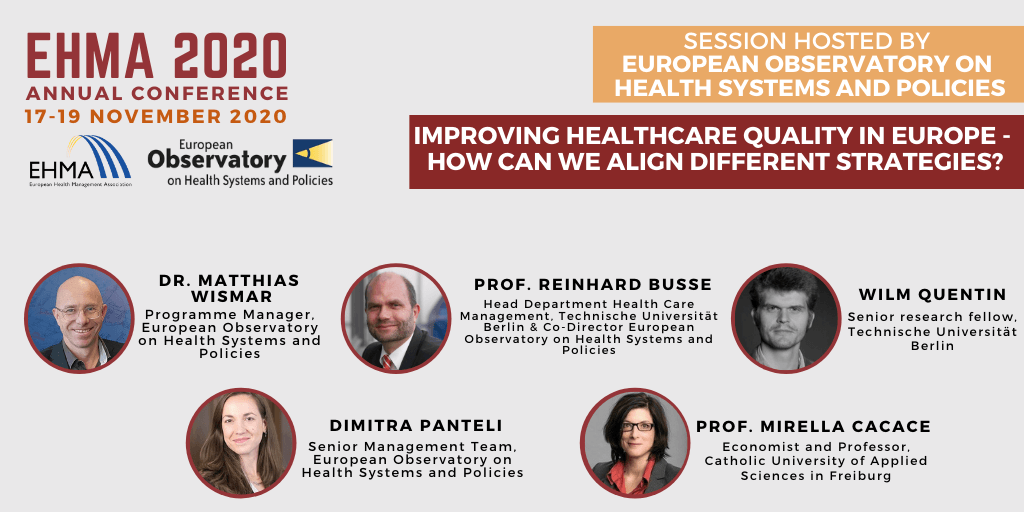Quality of care is one of the most frequently quoted principles of health policy, and a priority on the policy agenda at different levels. However, the understanding of the term and what it encompasses varies. What is more, evidence on the effectiveness and cost-effectiveness of different quality strategies is not always readily available for policy-makers, who have to struggle with prioritizing initiatives for investment.
The European Observatory on Health Systems and Policies in collaboration with the OECD carried out a comprehensive study to bridge this gap. The study deals with the interpretation of health care quality and the evidence on selected strategies aiming to assure or improve it.
On Wednesday, 18 November at 09.00 the European Observatory on Health Systems and Policies will host a session discussing the analytical framework, exemplary findings for selected strategies and conclusions from this work.
This session aims to provide participants with insight into the multidimensional concept of quality of care (and its relation to health system performance) and a comprehensive framework for looking at different quality strategies. Furthermore, it will provide tools to understand the evidence on the effectiveness, cost-effectiveness and implementation particularities of public reporting and pay for quality (P4Q) mechanisms, with a focus on the European context. Finally it will provide knowledge about the interrelations between different strategies for assuring and improving quality of care and how they can fit together into an overall strategic framework.
Moderated by Matthias Wismar – Programme Manager, European Observatory on Health Systems and Policies – the session will see the participation of Reinhard Busse, Head Department Health Care Management, Technische Universität Berlin and Co-Director, European Observatory on Health Systems and Policies; Mirella Cacace, Economist & Professor of health care systems and health policy, Catholic University of Applied Sciences, Freiburg; Dimitra Panteli, Senior Management Team, European Observatory on Health Systems and Policies; and Wilm Quentin, Senior research fellow, Technische Universität Berlin.

